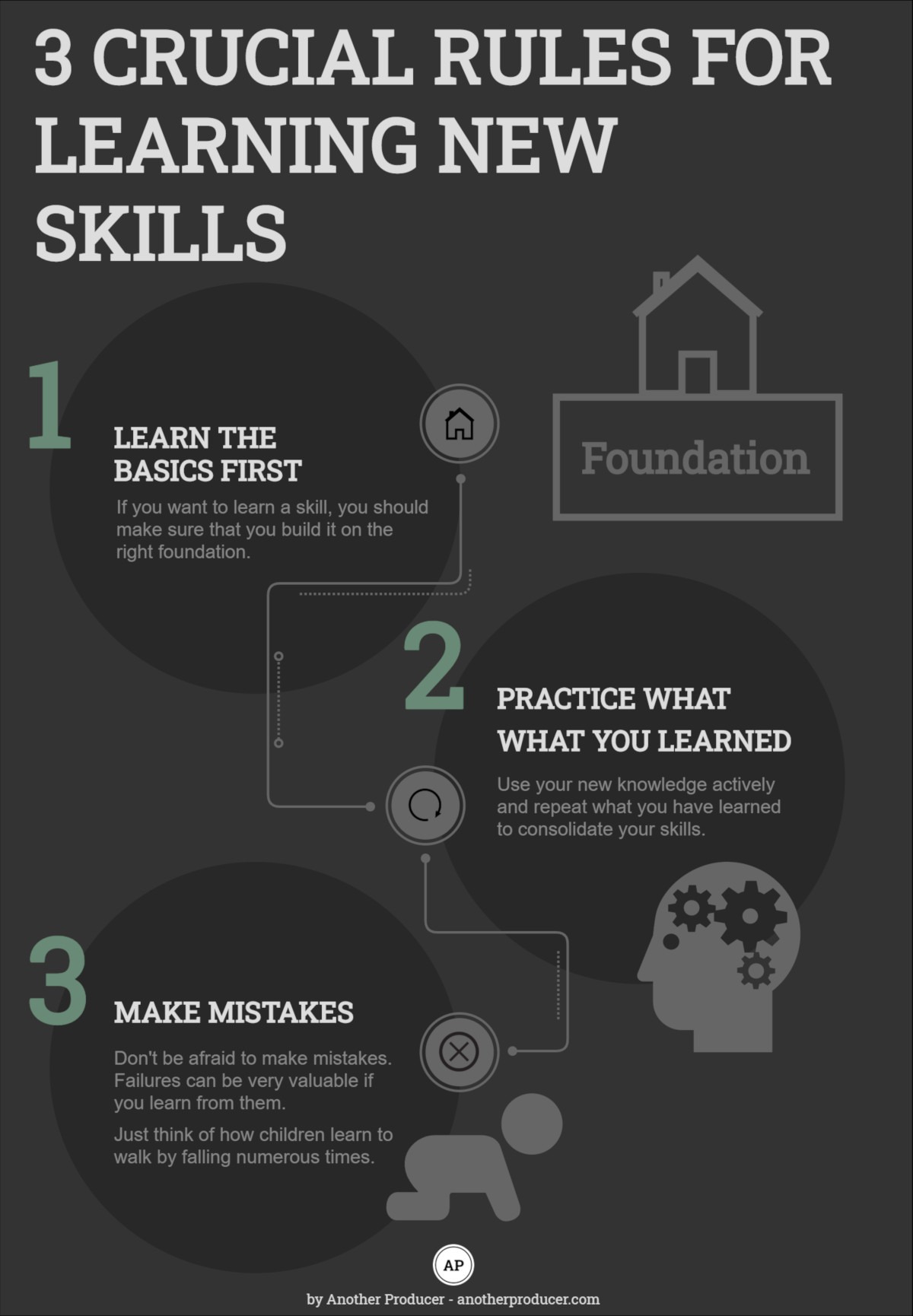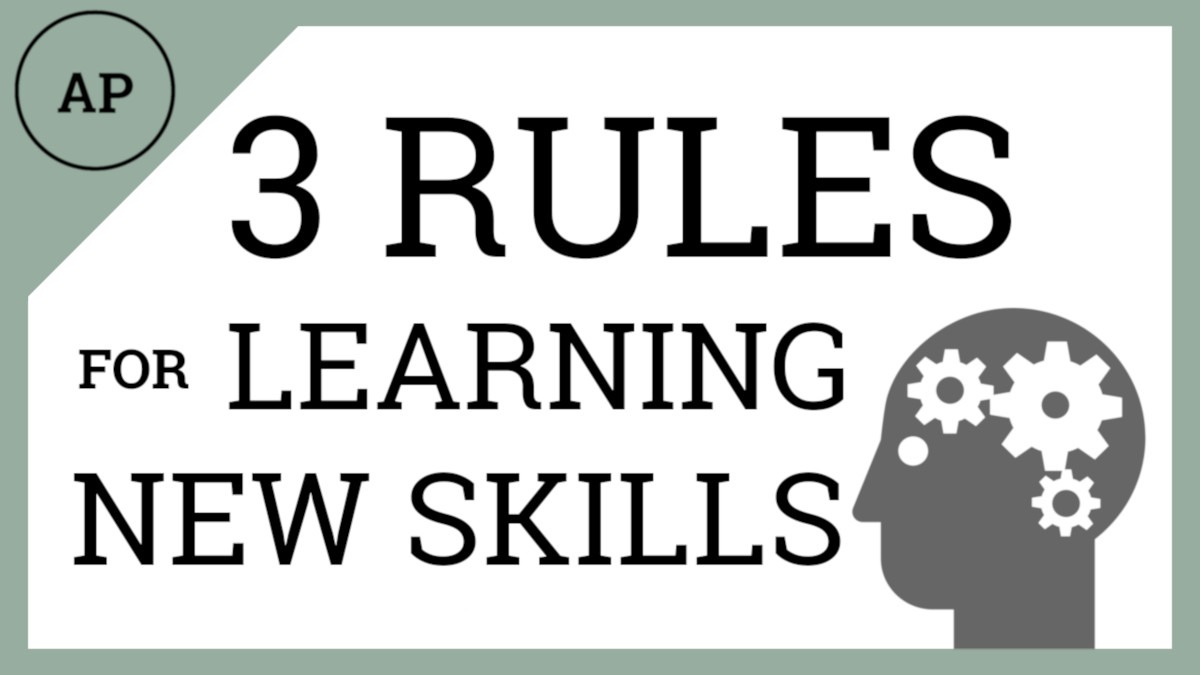3 Crucial Rules For Learning New Skills
This blog article is inspired by my Spanish teacher, who reminded me of 3 rules for learning new skills, you should follow if you want to learn a new skill. It does not matter if you want to learn how to play an instrument, how to produce songs, a language or anything else. These three rules even could be seen as principles that always apply.
Rule 1: Learn the basics first!
Imagine you see a guitarist at a concert playing an amazing solo. You think to yourself: “Wow, I want to be that guy!!”. So the next day you buy an electric guitar and try to play this solo. It will probably sound terrible.
It is like starting to learn mathematics with integrals before even calculating 1+1. Probably no one would try to do this. Of course, there is the possibility that you are so talented that you can play the solo right away. But this is rather the exception.
My Spanish teacher used the metaphor of a house to visualize this rule. If you want to build a house you need to make sure that it stands on solid ground so that it does not collapse. So if you want to learn a skill, you should make sure that you build it on the right foundation as well.
To stick with the guitar example – you could check the correct positioning of your hands and practice your timing using a metronome.
When you learn the basics of a skill, you have a solid foundation to build on.
Rule 2: Practice what you learned!
Malcolm Gladwell’s 10,000-hour rule, which states that you can achieve world-class expertise in any skill if you practice it in the right way for about 10,000 hours, has proven to be wrong.
However, practicing is still an important factor in learning a skill. According to an article in the Royal Society Open Science journal, practicing still accounts for 26% of the difference between good violinists and less accomplished violin students.
My Spanish teacher mentioned that if you have to speak a language, you learn it a lot faster than when you only learn the theory. I would say this applies to all kinds of things that you might want to learn.
Use your new knowledge actively and repeat what you have learned to solidify your skills.
Rule 3: Make mistakes!
In school, we learn that making mistakes is bad. But, there are actually two ways of learning. You can punish failure or reward success. Mistakes are also required to learn as they can show you where you can improve. A study found out that having the opportunity to learn from mistakes can even turn into a positive experience.
My Spanish teacher used the process of how children learn to walk as an example. They keep on trying to walk even though they fall numerous times until they finally can walk. Another great example is Thomas Edison, who did not believe that he failed, even after thousands of unsuccessful theories regarding the electric light.
Don’t be afraid to make mistakes. Failures can be very valuable if you learn from them.
Although I called them rules, you should rather use them as guidelines.
“You don’t learn to walk by following rules. You learn by doing and falling over.”
Richard Branson



Keep up the good work.